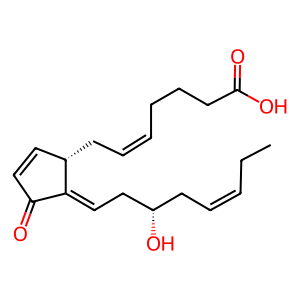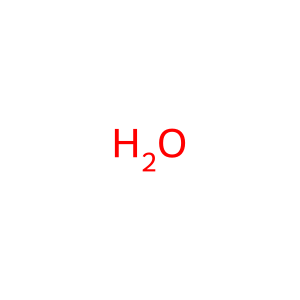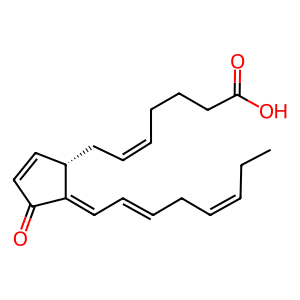Reaction: δ12-PGJ3 spontaneously dehydrates to 15d-PGJ3
- in pathway: Biosynthesis of electrophilic ω-3 PUFA oxo-derivatives
It is proposed that δ12-prostaglandin-J3 ( δ12-PGJ3) undergoes a second dehydration to form 15-deoxy-prostaglandin J3 (15d-PGJ3) (Fitzpatrick et al. 1983, Shibata et al. 2002). Oxo-fatty acids, like 15d-PGJ3, can covalently bind and activate the peroxisome proliferator-activated receptor γ (PPARγ) and inhibit pro-inflammatory cytokine and nitric oxide production (Groeger et al. 2010, Waku et al. 2009, Shibata et al. 2002, Lefils-Lacourtablaise et al. 2013). In mice, oxo-prostaglandins such as 15d-PGJ3 may have a chemopreventative effect in myeloid leukemia (Finch et al. 2015, Hedge et al. 2011).
Reaction - small molecule participants:
H2O [cytosol]
15d-PGJ3 [cytosol]
δ12-PGJ3 [cytosol]
Reactome.org reaction link: R-HSA-9028260
======
Reaction input - small molecules:
Delta(12)-prostaglandin J3
Reaction output - small molecules:
water
15-deoxy-Delta(12,14)-prostaglandin J3
Reactome.org link: R-HSA-9028260



